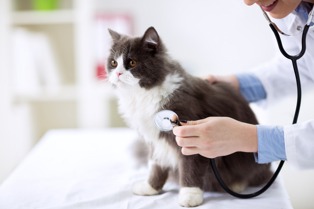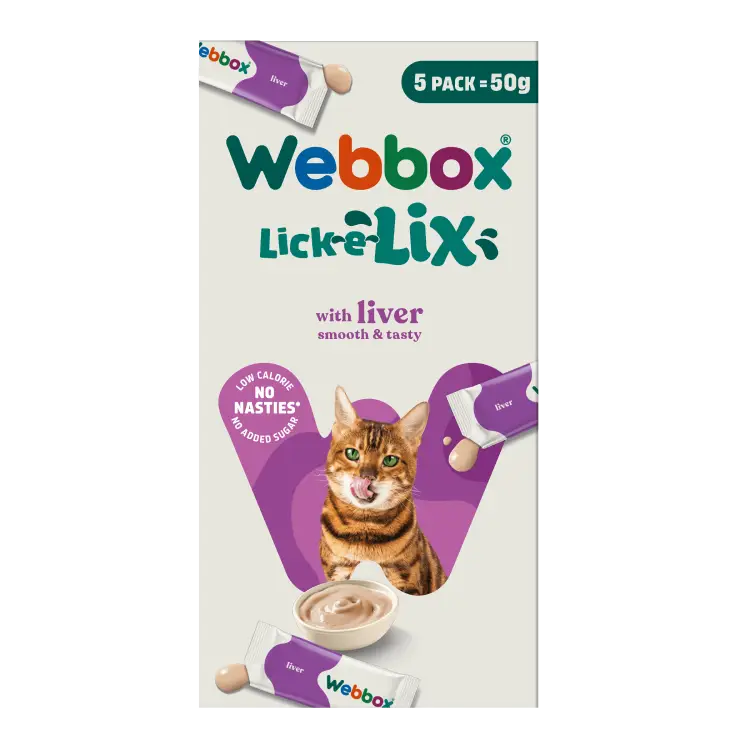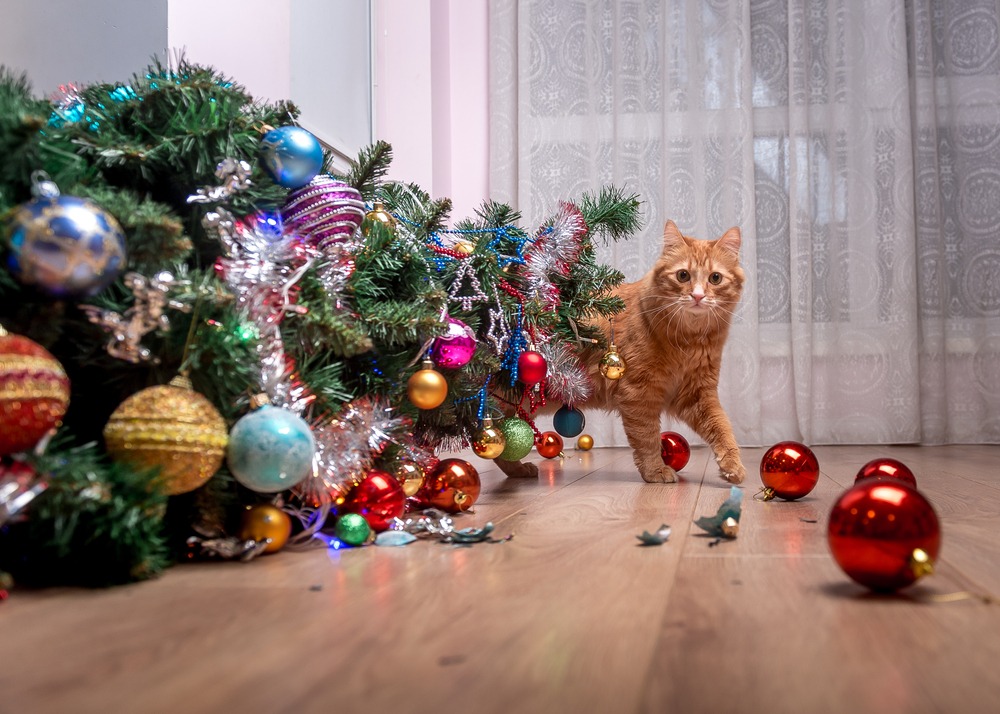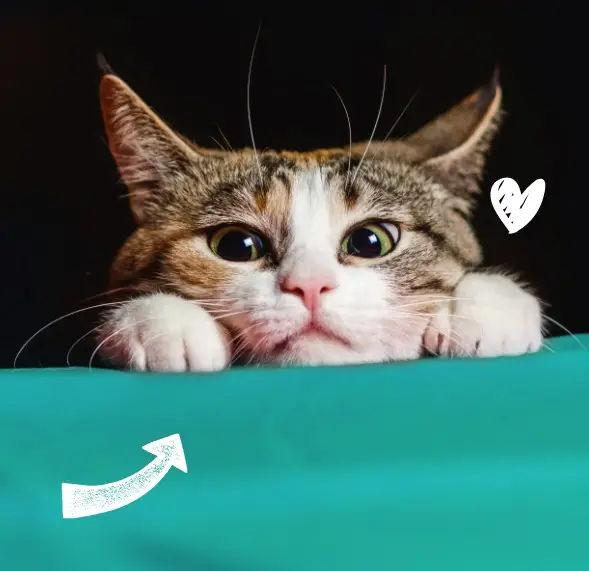
Your cat has 5 basic needs that owners are required to provide. They are Environment, Diet, Behaviour, Companionship and Health.
Environment & exercise
As well as the obvious things like a comfy, warm place to sleep, cats have some extra particular requirements. They like somewhere to hide where they can feel safe and secure – something as simple as a cardboard box, space under the bed or a propped open wardrobe. They also need somewhere up high they can go, like shelves or windowsills. You could put a blanket on top of a wardrobe, with an access stool.
Cats also need a litter tray for every cat, plus one extra – so 2 cats should have access to 3 trays.
Exercise is vital to keeping your cat healthy and stimulated. Cats who go outside will engage in all sorts of hunting behaviours, such as stalking, pouncing and play. It’s even more important to give indoor cats the opportunity to play and indulge their hunting instincts. Toys should be made available and make the time to engage with your cat in playtime. Toys needn’t be expensive – a box with holes or a ball of tin foil – a little imagination goes a long way. Toys to encourage hunting behaviour are particularly beneficial and remember to keep swapping toys to avoid boredom setting in.
Companionship
Cats are renowned for liking their own company and don’t like sharing their living space with newcomers (littermates are the exception). Being forced to share living space with an unrelated cat can be stressful and lead to undesirable behaviour.
Cats vary hugely in the amount of human interaction they enjoy. Some are very affectionate and enjoy long periods of cuddling and play, while others will enjoy briefer periods of engagement before getting fed up, while others want very little interaction and will be fearful or aggressive if pushed. The amount of socialisation as a kitten is often a factor in this, though building up a level of trust in a cat is possible, with time, patience and a lot of kindness.
Health
Many pet health issues can be prevented by regular vaccinations and checks at home. Cats are also very used to grooming and cleaning themselves. Here are a few things to think about and look out for:
- Vets – Every cat needs to be registered with a vet, who is best placed to offer help and advice. Vets bills can mount up, so consider pet insurance for unforeseen illness or accidents.
- Vaccinations – These fight against harmful disease and infection, but provide protection only for a limited time. You need to ensure they are adequately covered throughout their life.
- Fleas & parasites – Ensure you regularly treat your cat for fleas and worms, particularly if they go outdoors. Your vet can advise on correct treatment.
- Microchipping – It’s the quick and inexpensive way that owners can be reunited with the hundreds of cats that go missing every year in the UK.
- Ears – Check them regularly. Ear cleaning may be necessary and you vet can show you how to do this safely and successfully.
- Eyes – They should be bright, well hydrated and free from discharge. Take care and vet advice if they require cleaning.
- Claws – The natural act of scratching should keep them in check (a scratch post can be a saviour for your furniture!), but if they require clipping, your vet or groomer can do this for you or show you how to do it yourself safely.
- Grooming and bathing – most cats would prefer to take care of this themselves, but many cats enjoy the bonding that comes with being gently brushed, while cats exposed to baths at a young age can also enjoy the skin and coat benefits it brings.

Shop for Dogs

Personalise your search:
Shop for Cats

Personalise your search:
Our Most Popular Products


Webbox Lick-e-Lix with Beef Cat Treats 75g


Webbox Squeaky Ball Dog Toy



Webbox Lick-e-Lix Cheese & Taurine Cat Treats 75g


Webbox Lick-e-Lix Liver Cat Treats 50g


Webbox Lick-e-Lix Chicken Cat Treats 75g








